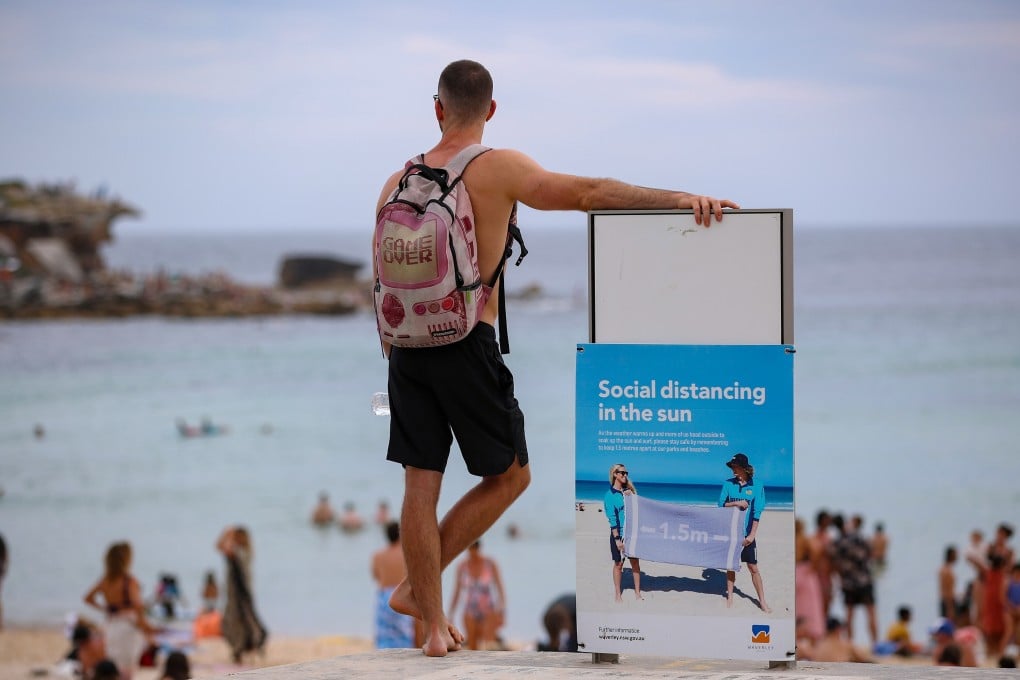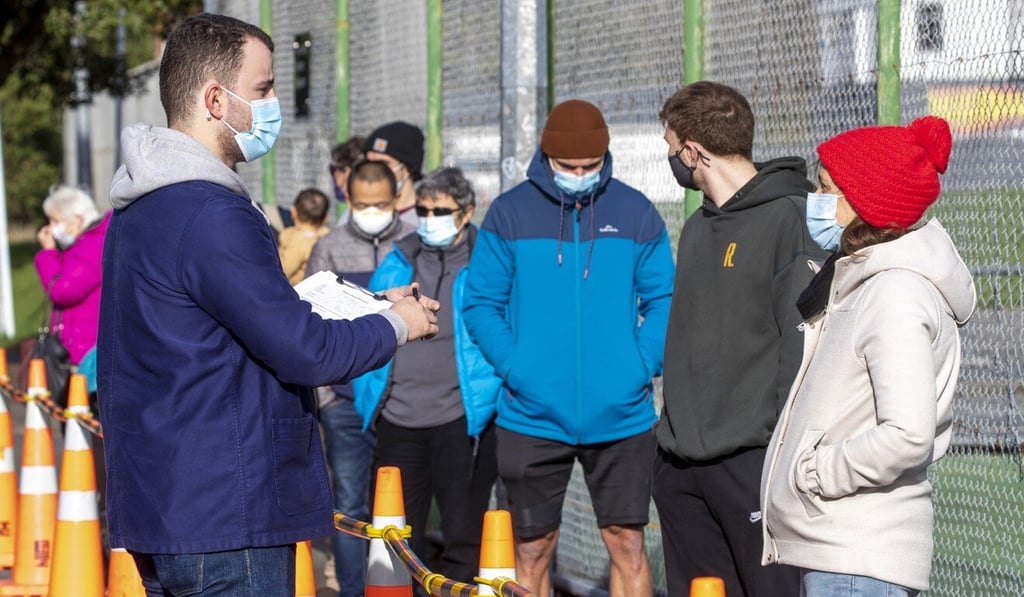Advertisement
How can Australia, New Zealand, and Hong Kong return to pre-pandemic life? Vaccines, timetables, and targets
- ‘Zero-Covid-19’ economies have resisted being drawn on specifics about when to do away with restrictions on everyday life
- But experts say offering people a realistic endpoint will help with mental health and ensure authorities do not shift the goalposts
Reading Time:5 minutes
Why you can trust SCMP
21

Australian Prime Minister Scott Morrison pledged borders would stay closed until it was “safe”. New Zealand Prime Minister Jacinda Ardern linked the resumption of international travel to “enough” people getting vaccinated. Hong Kong Chief Executive Carrie Lam Cheng Yuet-ngor said the “coverage of the jabs” would be key to easing border restrictions.
Throughout the Covid-19 pandemic, governments have resisted being drawn on specifics when discussing the circumstances for doing away with restrictions on everyday life, preferring to appeal to nebulous concepts such as “safety”. Reticence has been especially pronounced in “zero-Covid-19” economies such as Australia, New Zealand and Hong Kong, all of which have kept a tight lid on caseloads with strict border controls that effectively halted international travel.
But as many Asia-Pacific economies near 18 months of self-imposed isolation, while highly vaccinated North America and Europe open up, there is a growing clamour for targets and timetables in a bid to return to some semblance of normal life.
“I do think there are many ways that having a well-laid-out, well-thought-through, stepped plan can actually help,” said Catherine Bennet, a public health expert and epidemiologist at Deakin University in Melbourne.
Advertisement
“It changes the way you are thinking, because we know what our ultimate goal is. And ultimately people know where they will be – they picture themselves in six or 12 months’ time, and people need that.”
There are several arguments in favour of laying out specific timetables and targets for variables such as vaccinations and mortality. Providing a clear link between vaccinations and the easing of restrictions may boost vaccine uptake, experts say – a crucial issue in many low-Covid-19 economies with sluggish vaccination rates. Offering people a realistic endpoint may also lessen feelings of uncertainty, a major contributor to poor mental health during the pandemic, and help ensure authorities do not continually shift the goalposts for restoring pre-pandemic freedoms.
Advertisement

Advertisement
Select Voice
Select Speed
1.00x